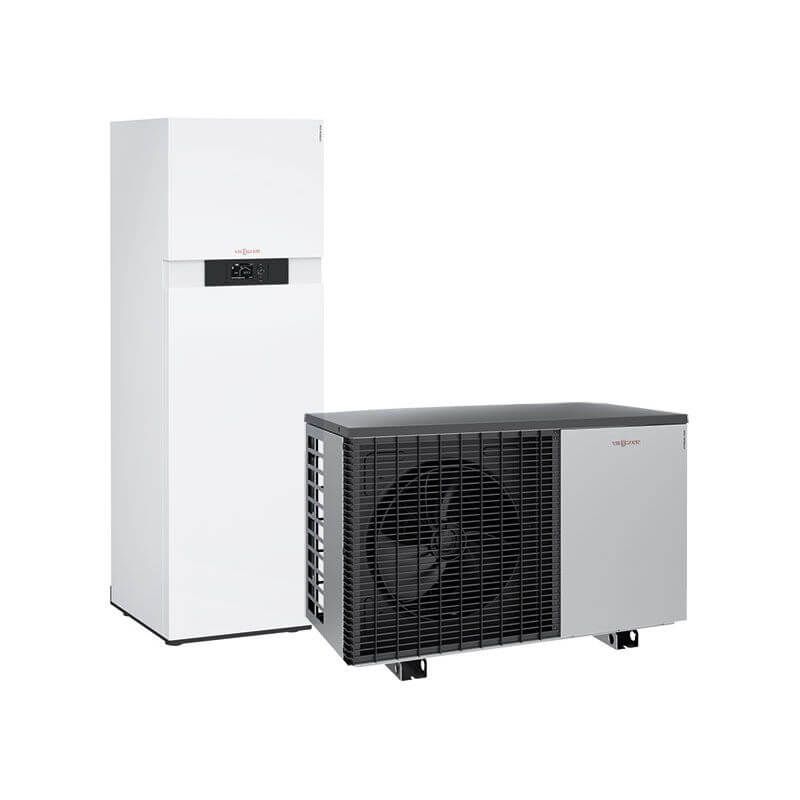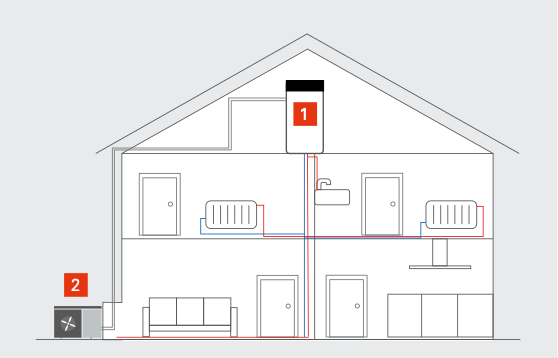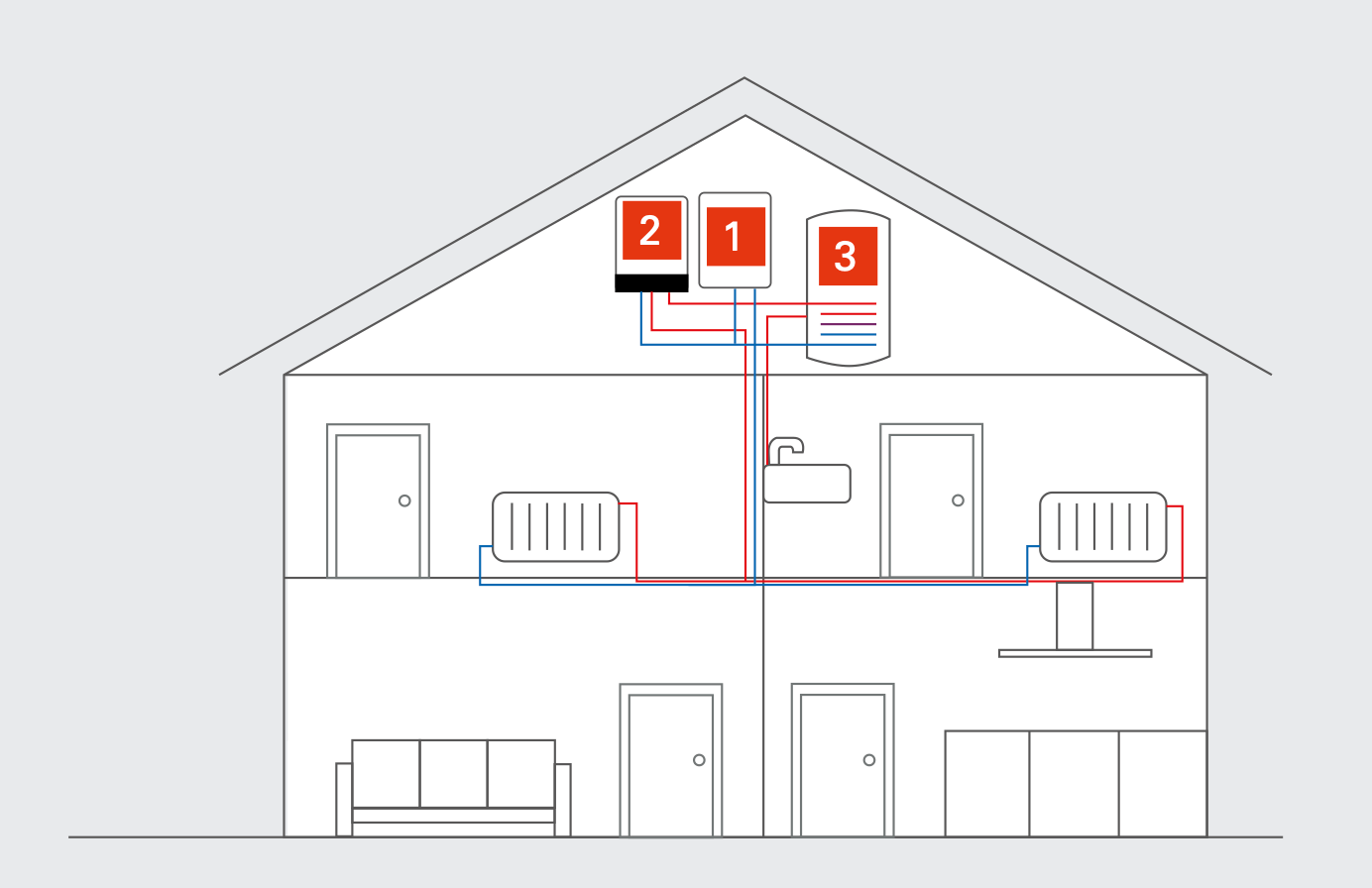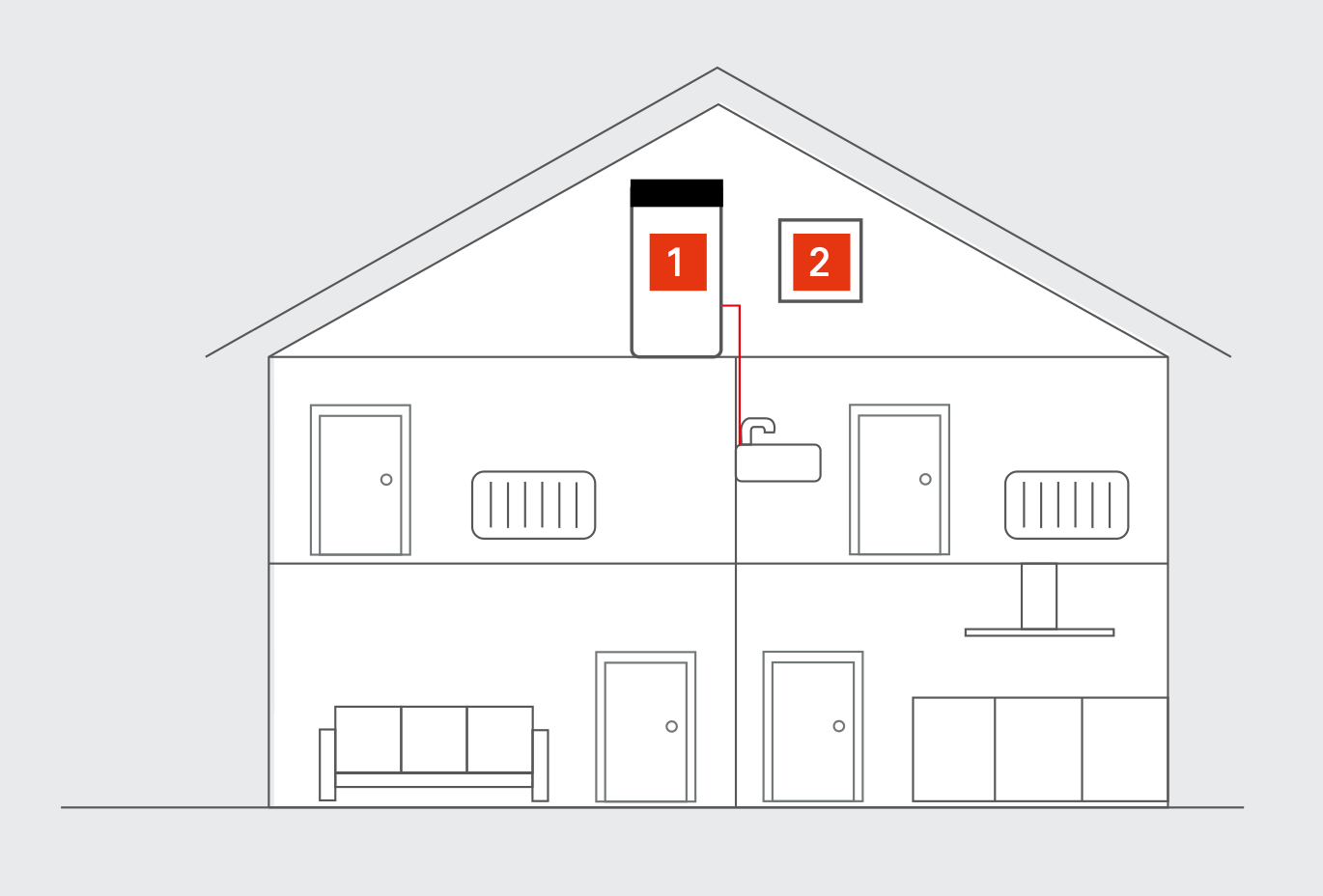Garrat Posted on 29-05-2022 | updated on 5-06-2022
Renewable energy
Heat pumps
Do you also want to lower your energy bill and have a comfortable indoor climate? Consider a heat pump. A heat pump heats (and cools) your home and provides hot tap water. Heat pumps last a long time and are a sustainable solution.
Contents:
- Why a heat pump?CoolingDoes a heat pump make noise?Is my home suitable for a heat pump?Placement of heat pumpMaintenance of heat pumpWhich heat pumps are there?-- Air/Water-- Ground/Water-- Hybrid-- Boiler
Why a heat pump?
You use gas to heat your home and hot water from your tap and shower. But in the Netherlands we eventually have to get rid of gas. That is why it is smart to look for alternative solutions. A heat pump is such a solution. With a heat pump you no longer heat your house with natural gas as with a central heating boiler, but with electricity. As a result, you will use less gas or even no gas at all. That is more sustainable and cost effective.
Cooling
Another advantage of some heat pumps is that you can also cool your home, provided your delivery system is suitable for this.
This naturally ensures an extra comfortable indoor climate in the summer. During cooling, the process is reversed in the heat pump. Instead of extracting heat from the outside air or soil to heat your home, cooling takes heat from your home and transfers it outside or back into the soil via the heat pump.
The water that flows through, for example, floor pipes ensures that the home reaches a pleasant temperature. This pleasant way of cooling is also called active or passive cooling.
Does a heat pump make noise?
It is true that heat pumps, like many other household appliances, make noise. The noise mainly comes from the compressor. This sucks in air from the environment and puts pressure on it. In fact, it creates air pressure. Just think of a fan. This pushes air into space, as it were, and this makes noise. With the air/water heat pump and the ventilation heat pump, the fan of the heat pump (also referred to as the 'outdoor unit') causes the most noise.
Is my home suitable for a heat pump?
There is no clear answer to whether your home is suitable for installing a heat pump. Experience shows that most homes after 1990 are usually suitable.
We at HeaTech will therefore always examine the situation on site and discuss your wishes with you. To switch to a heat pump, it is in any case important that your home is well insulated and draft-tight. It is also important that the climate system is suitable for low temperature heating. Think of underfloor heating and/or low temperature radiators.
A heat pump produces heating water with a temperature of approximately 55°C. That is usually insufficient for 'ordinary' radiators.
If you do not have underfloor heating and your house is less well insulated, a hybrid heat pump may be a good solution. Thanks to the cooperation with a central heating boiler, your home is still sufficiently heated.

Heat pump installation
Installing a heat pump is always custom work. HeaTech looks at the capacity you need to comfortably heat your home and at the place to place the heat pump.
Experience shows that we almost always have a suitable solution for every situation.
Maintenance heat pump
The heat pump in your home ensures that you have a comfortably warm house and possibly hot tap water. Do you want to be sure that your heat pump operates safely, cost-effectively and reliably? Have it maintained by HeatTech. Whether you want a one-time check or a maintenance contract for an annual check, we offer the service that suits your needs.
Which heat pumps are there?
1. Air/water

Air/water heat pumps
Air/water heat pumps are among the most commonly used heat pumps. This type has relatively low investment costs and many different installation options. This heat pump has an indoor and an outdoor part and is also very suitable for existing buildings
2. Soil/Water

Brine/water heat pumps
Ground-to-water heat pumps use energy in the ground for heating and hot water preparation. This is done by placing ground collectors close to the surface, which transmit the thermal energy to the heat pump. Or it is done by means of probes that are placed vertically or obliquely in the ground and generate thermal energy at a depth of
40 to 100 meters.
Compared to air-to-water heat pumps, brine-to-water heat pumps generally achieve a higher efficiency, but they require a larger investment and require more space and official approval. They are very suitable for new construction, apartments and serial construction.
3. Hybrid

Hybrid Heat Pump
Is completely gas-free heating still a step too far for you? Then a hybrid heat pump is a nice intermediate option. This heat pump can be combined with any type and brand of central heating boiler.
The heat pump covers basic needs by extracting heat from the outside air and bringing it to a flow temperature of max. 58 °C via a compressor. Your central heating boiler will only be switched on if this means lower operating costs for you, less CO2 is emitted or if the hot water comfort is increased as a result.
Due to the high heat share via the heat pump (up to 80 % of the annual heat requirement), the operating costs of a hybrid heat pump are particularly low.
4. Boiler

Heat pump boiler
Heat pump boilers use energy from the ventilation air to heat tap water in an efficient and environmentally friendly way. In addition to the energy from the ventilation air, a heat pump boiler uses electrical energy from the mains for the compressor. For example, you can heat tap water without natural gas and in combination with PV panels with (partly) self-generated electricity.
An additional advantage of a heat pump water heater: if the heat pump uses the circulating air as a heat source, it simultaneously dehumidifies the room and protects it against the risk of mould. Linked to an existing ventilation system, the heat pump can even ventilate the rooms in a controlled manner.




